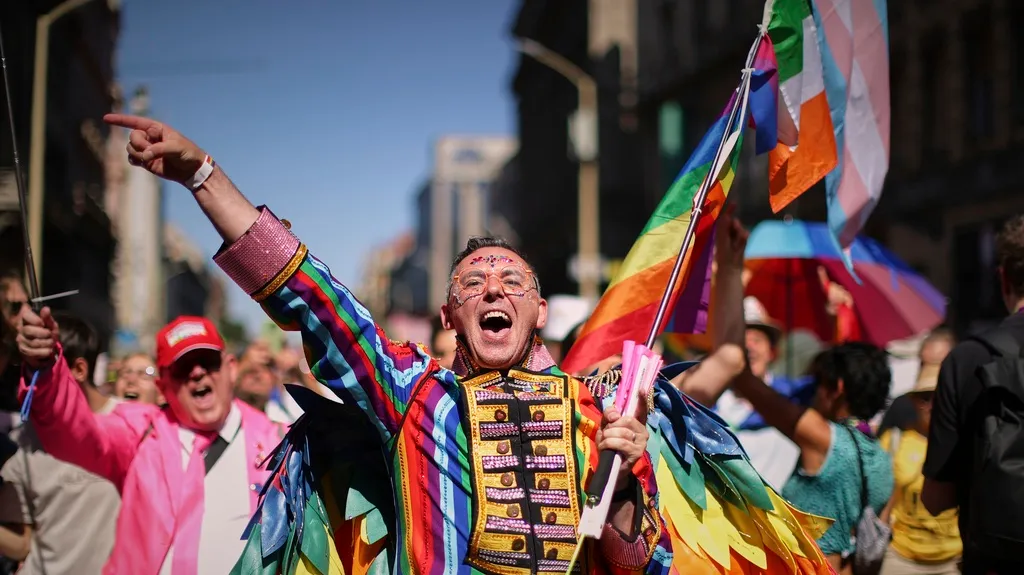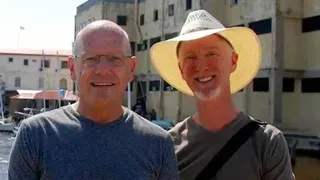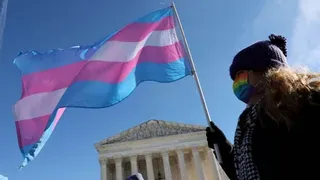April 4, 2013
LGBTs of Color Encouraged To Break Silence on Mental Health Issues
Michelle Lim READ TIME: 7 MIN.
On Mar. 22-23, the Hispanic Black Gay Coalition and TOD@S (Transforming Ourselves through Dialogue, Organization, and Services) came together in a safe environment to discuss and address the taboos and stigma related to mental health and illness that have persisted in Black and Latino communities.
"Sometimes when we talk about oppression we like to box what oppression is, but oftentimes we're talking about the basis of a society that builds relationships on dominance, whether that dominance has to do with gender, sexuality, ethnicity or nationality. Watching how structural oppression of societies that build themselves based on relationships of power manifest," said Carmenleah Ascensio about the societal structures of oppression.
She continued by expounding on specific types of oppression she's witnessed in her work with the community, "I work, for example, with poor undocumented Latina women who are queer. It's a pretty marginalized population that is being oppressed by poor undocumented Latina women. So you really come up against how we really foster these relationships in society in all kinds of ways based on dominance and power. It challenges the way we view partner abuse in mainstream society and also creates more barriers for getting help."
Sexual abuse was one of the many topics that were discussed during the mental health weekend. According to the Centers for Disease Control and Prevention, one in four women and one in six men are sexually abused before the age of 18. This means that at least 42 million adults in the country right now are survivors of sexual abuse, not including the many unreported cases of abuse.
Participants were encouraged to break the silence by sharing stories and building understanding concerning the intersecting identities of Latino and Black LGBTQ individuals -- especially race and ethnicity, gender and sexuality -- and the difficulty of accessing services and resources that address the personal, cultural and social issues that affect mental health in their communities.
The events kicked off on Friday with a screening of award-winning writer and director Stanley Bennett Clay's film "You Are Not Alone." Members of the Black and Latino LGBT community gathered for a night of coffee, good food, and film at the Haley House Bakery Caf� in Roxbury. The Haley House is known for bringing people together through their community tables and soup kitchen events where members of the community, volunteers, and the hungry come together in a celebration of eating and an act of community building.
A large group of all ages came together to discuss the docudrama, which told the stories of Black gay men from the U.S., the Caribbean and Africa. Through insightful interviews and dramatic reenactments, Clay's film shed light on the many struggles being dealt with by Black gay men on a daily basis from sexual abuse by a father, drug and alcohol abuse, suicide, HIV as well as the isolation, loneliness and pain that results from having no one to whom they can confide their troubles.
Clay also talked about the importance of media's role in this discussion, saying, "The media has a great opportunity to educate in a way that other outlets cannot or cannot do as effectively. When we deal with things like domestic violence, we deal with mental illness, when we deal with all these subjects they sometimes become very academic and as they are discussed in academic terms, sometimes it puts some people to sleep."
"The media serves as a spoonful of sugar to help us swallow and absorb very important issues," he continued. "I love what the media is doing. Stories are being told. When we look at 'Brokeback Mountain,' it helps people in and out of our community see and understand what gay love really is. The media is really important and is becoming more and more important as we go on."
The events continued the following afternoon at Fenway Health Center where a larger congregation gathered for a panel discussion exploring the effects of violence and trauma on the mental health of Black and Latino LGBTQ communities. Isa Woldeguiorguis, executive director of The Center for Hope and Healing (a sexual assault crisis intervention agency based in Lowell, MA) facilitated an interactive dialogue.
Panelists included Carmenleah Ascensio, TOD@S Project Coordinator and licensed clinician with Fenway Health's Violence Recovery Program; Cornell University therapeutic crisis intervention trainer Nia Clark; acclaimed writer and media maker Stanley Bennett Clay; and Wilfred Labiosa, executive director of substance use disorder nonprofit CASPAR, Inc.
"The topic per se is taboo. For Carmenleah and me it's not, we do it every day, but then when we have these individuals coming to talk about mental health in a preventive way, that's totally taboo. You have to be at the extremes. There's nothing in between and we are raised not to talk about it with some stranger," said Wilbur Labiosa of the stigma that surrounds seeking professional psychological help.
"We need to talk about it within the family and if this happens within the family how are you going to talk about it or to your close friends," he told EDGE. "Your cousin, your aunt, should be there, but maybe they are the perpetrators so you don't feel comfortable talking about it because of the severity of it or the proximity of it and so we are taught as a culture, as a community not to talk about it in a preventive manner."
Panelists and audience members discussed the different facets of institutionalized oppression versus internalized oppression and how the two coincide. The church came up immediately as a primary source of institutionalized oppression for both Black and Latino LGBT communities. The church and faith lie at the center of both communities and is more than an institution; it represents family and friends and being shunned by this community for being who they are leaves many LGBT displaced and lost in a larger world where even the laws are not in their favor.
Nia Clark opened up about the struggles of the transgender community and how many are faced with the threat of job loss merely for their gender identity and how in losing their jobs they are sometimes forced to do things they would otherwise not choose for themselves, like staying in abusive relationships with partners who financially provide.
"I think of how our society in general is not as accepting of people who do not look a certain way, people who cannot get those jobs in the community," said Clark. "What are they resorting to? They're resorting to sex work. It's what pays the bills, pays for the hormones, it pays for an amalgam of things, but with that you generate more risks. Unfortunately as a trans person you are objectified and we are not really personalizing some of these women."
Clark also spoke up about the reality that most in the LGBT community are not aware of the services available to them or if they are aware, are held back by the stigma of asking for help.
"You go into the clubs and the bars," she said. "I also used to do outreach at some of these nightclubs and we use to pass out condoms and we'd pass out materials to the girls, but we really weren't helping them to actually get jobs in the community."
Clark said that helping these girls get the resources they need to survive is really important, adding, "It's also important that we are educating these girls. That's what our responsibility is. Without education, and knowledge how can you move forward?"
Ascensio is a licensed clinician who specializes in working with Latinos who are victims of abuse. She discussed the stigma of seeking help that exists within the community she works with stating that most of her patients either believe that suffering is a natural thing that should be dealt with within the family, given that most families have been dealing with a cycle of abuse for generations, or that those that seek professional help are one step away from being institutionalized.
"So often I find with Latinos there is intergenerational trauma and the way that people have learned how to cope is just by holding on to it and sucking it up so when the younger generation comes along and is exposed to different things, what they learned when they were they were younger was that 'No, I went through that too'. The grandmother, father, mother have no empathy or no sympathy," said Ascensio. "You suck it up, you hold on to it, and if you complain you get beaten for that. It's a continuous intergenerational trauma."
Panelists and participants also touched on the bar culture that shapes LGBT socialization into an environment where sex, drugs and alcohol become the center of gatherings. They stressed the importance of groups like HBGC and TOD@S that create a safe and healthy environment to bridge the gap between members of the LGBT community and become family for those who have none.
The weekend-long events were capped off with a career fair at the end of the panel discussion where participants could gain access to information for support groups like The Network La Red for themselves and their friends.
For more information, visit www.hbgc-boston.org/






